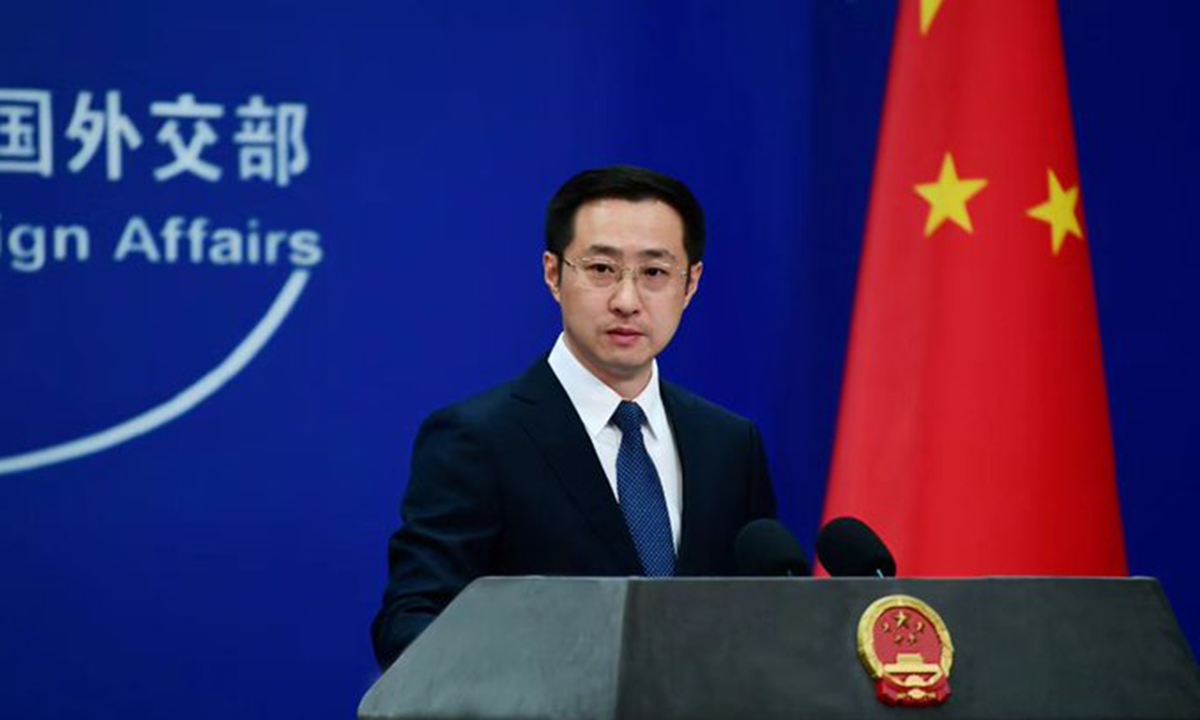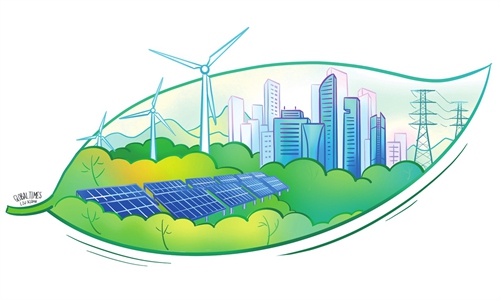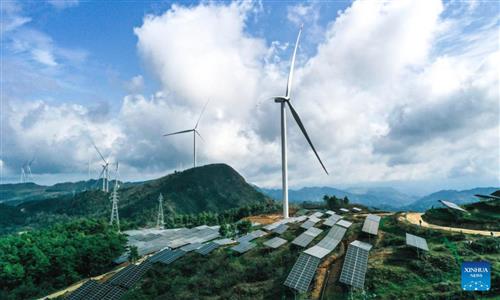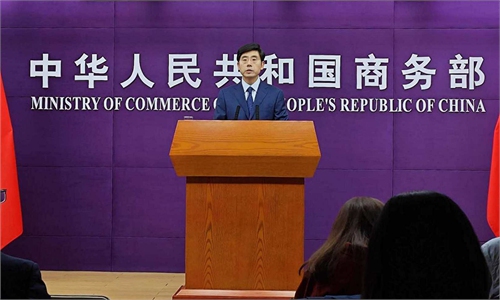Financial support for developing countries’ climate actions a moral responsibility of developed country: FM spokesperson

Lin Jian, the 34th spokesperson of China's Ministry of Foreign Affairs, meets the press. Photo: Courtesy of China's Ministry of Foreign Affairs
As the largest developing country, China has offered effective ways for relevant countries to actively respond to climate change, but it is also an unavoidable moral responsibility for developed countries to support developing countries financially in delivering climate actions, a Chinese Foreign Ministry spokesperson said on Thursday.
Spokesperson Lin Jian made the remarks at a regular press conference on Thursday in response to a Bloomberg report claiming that the upcoming COP29 climate summit will center on how to raise funds for vulnerable countries, and what role China should play.
Lin said that supporting developing countries financially for climate action fulfills not only the unavoidable moral responsibility of developed countries, but also their obligations under international law required by the United Nations Framework Convention on Climate Change (UNFCCC) and the Paris Agreement.
Developed countries promised in 2009 to annually provide $100 billion in climate finance for developing countries, however, they have been paying lip service for a long time, with the accumulated arrears exceeding $300 billion, which has greatly undermined the mutual trust between the North and the South and the global efforts in addressing climate challenge, Lin said.
If developed countries continue failing to shoulder their due historical responsibility for future climate finance arrangements at the COP29 at the end of this year, and even seek to shift their responsibilities by all means, it would significantly undermine the effectiveness of international cooperation on global climate management, and considerably hamper the realization of the global temperature-control targets set out in the Paris Agreement, according to Lin.
Despite the multiple tasks it encounters with regard to its economic development, the improvement of its people's livelihoods and the pollution control, China, as the largest developing country, has overcome all difficulties and conscientiously honored its commitments under the framework convention system, Lin stated.
“We are comprehensively promoting carbon peaking and carbon neutrality commitments, and will achieve the world’s highest reduction in carbon emission in the shortest period of time on record. At the same time, China is committed to supporting and contributing to other developing countries under the framework of South-South cooperation in coping with climate crisis,” Lin said.
To date, China has signed 50 memorandums of understanding on cooperation with 41 developing countries, hosted a total of 58 training courses on South-South cooperation in dealing with climate change, which resulted in the training of more than 2,400 professionals in the field of fighting climate change. These efforts have offered effective ways for relevant countries to actively respond to climate change, and are highly recognized and widely praised by developing countries, the spokesperson noted.
Moving forward, China will further strengthen South-South cooperation and continue to extend assistance to other developing countries in dealing with climate change to the extent of its capabilities, Lin said.
Global Times



